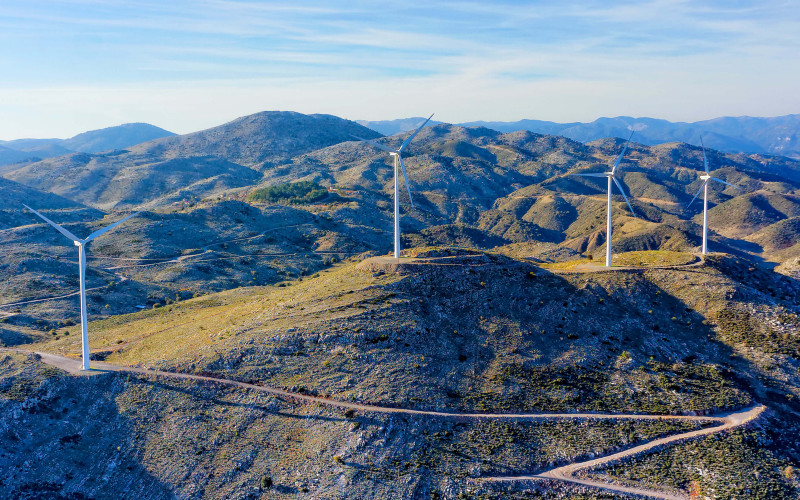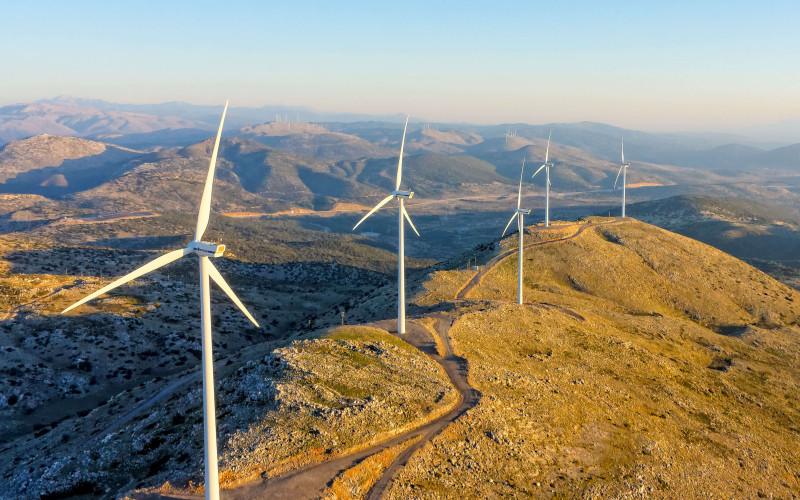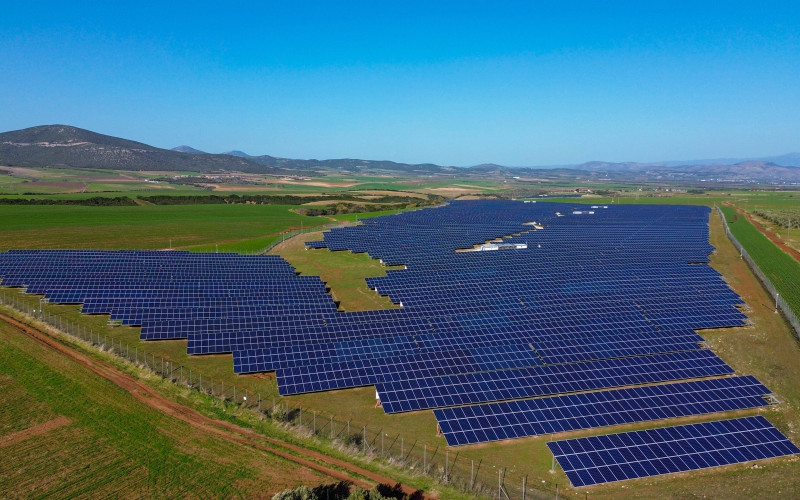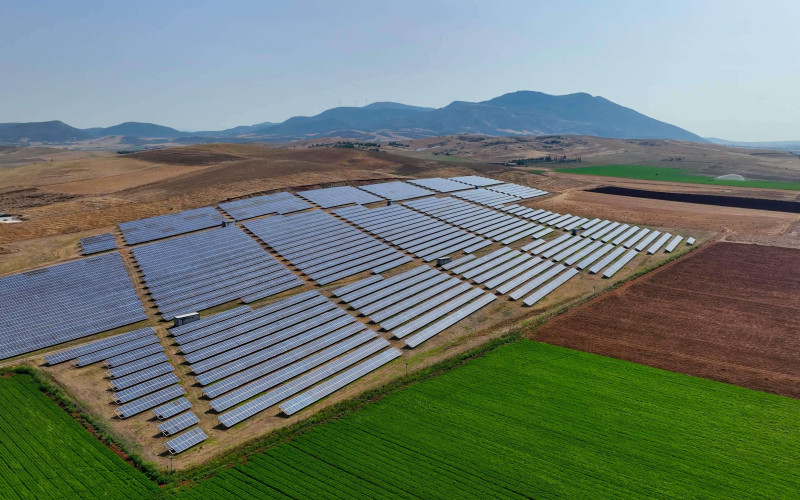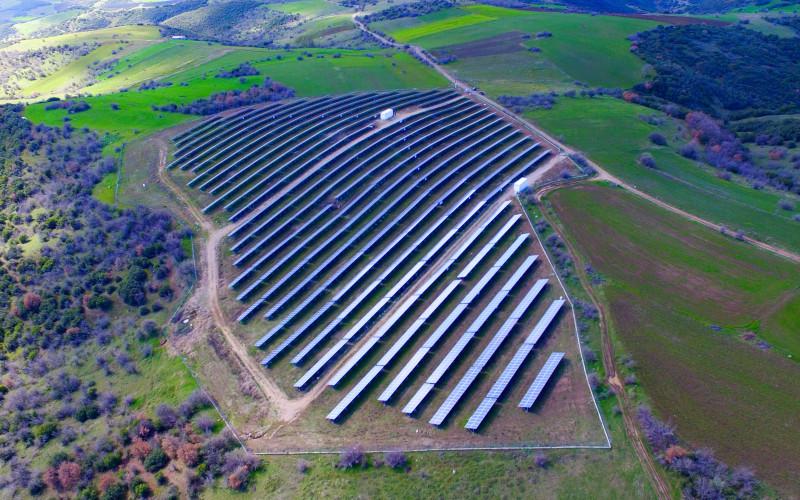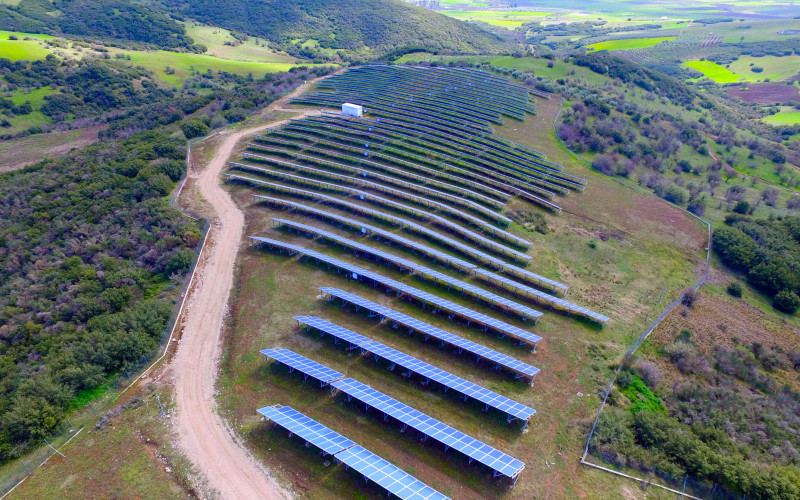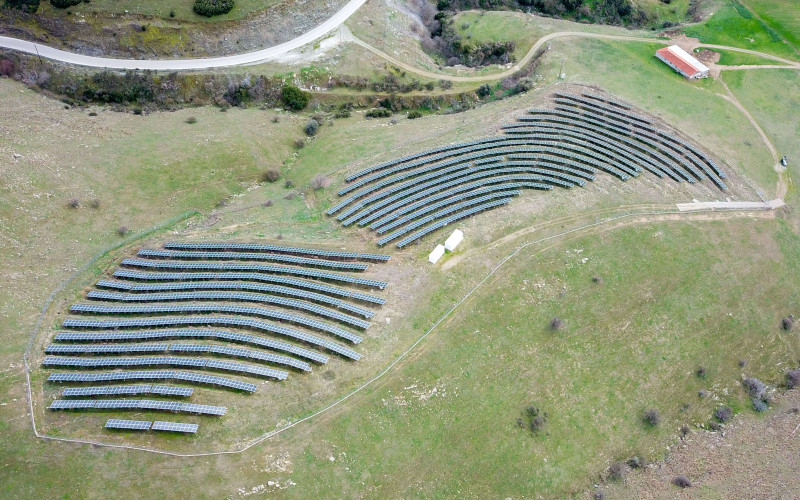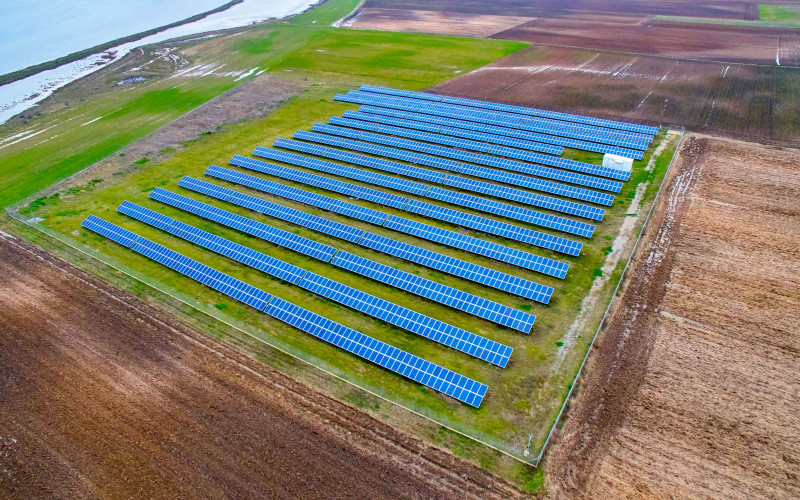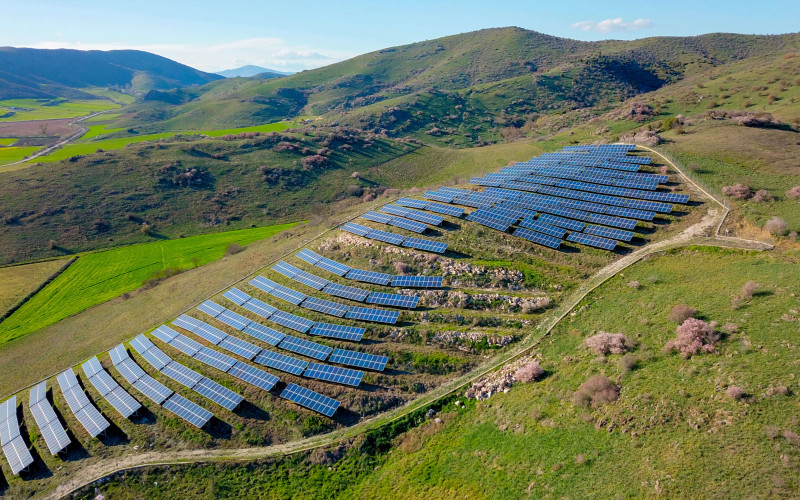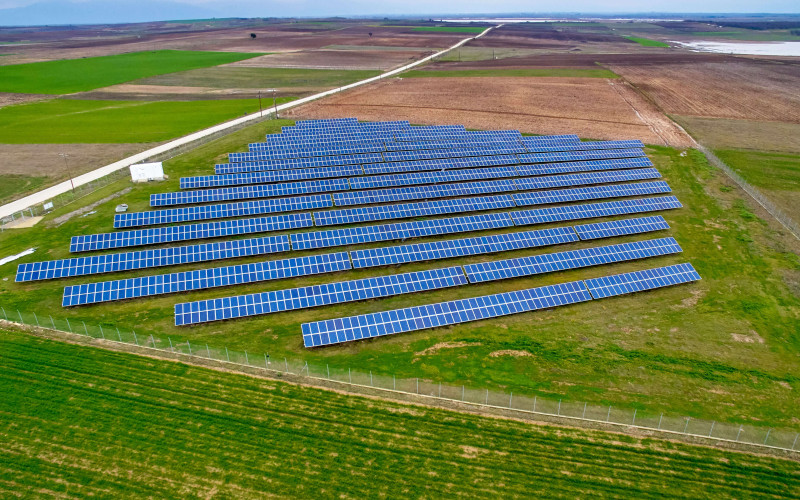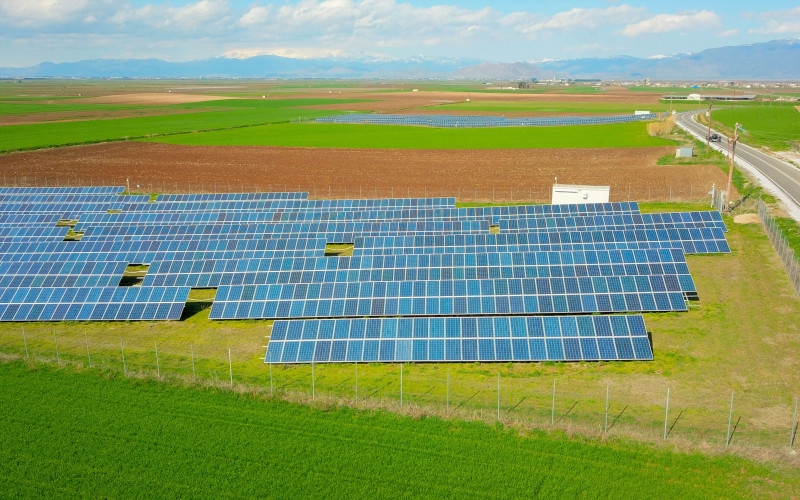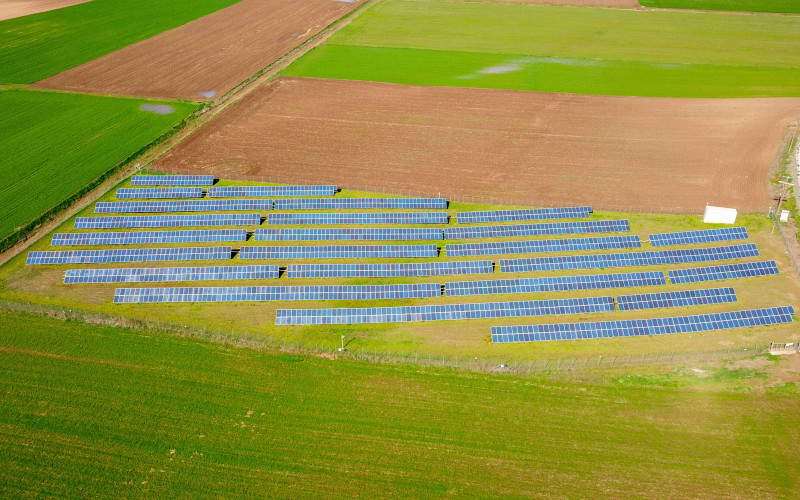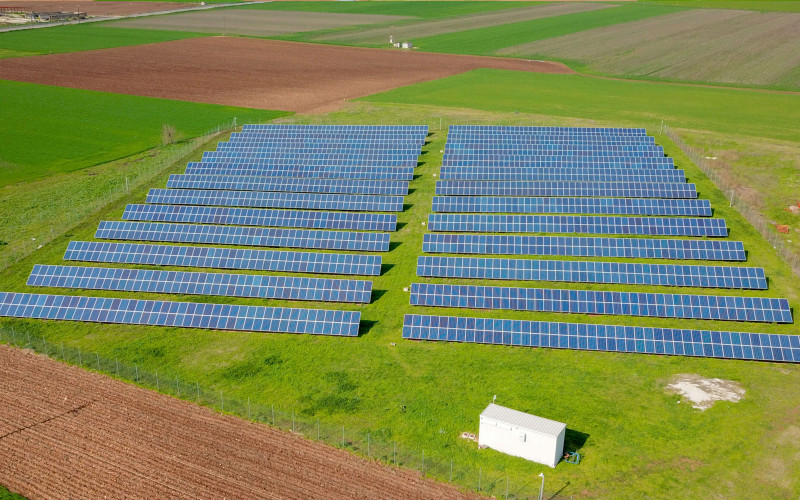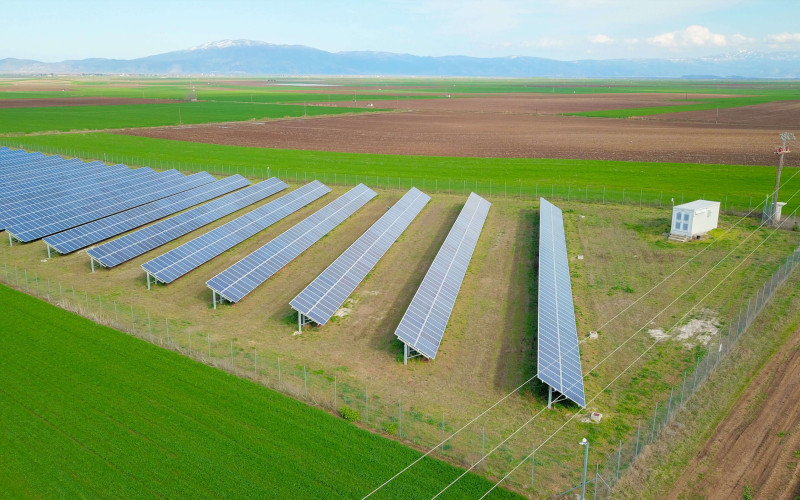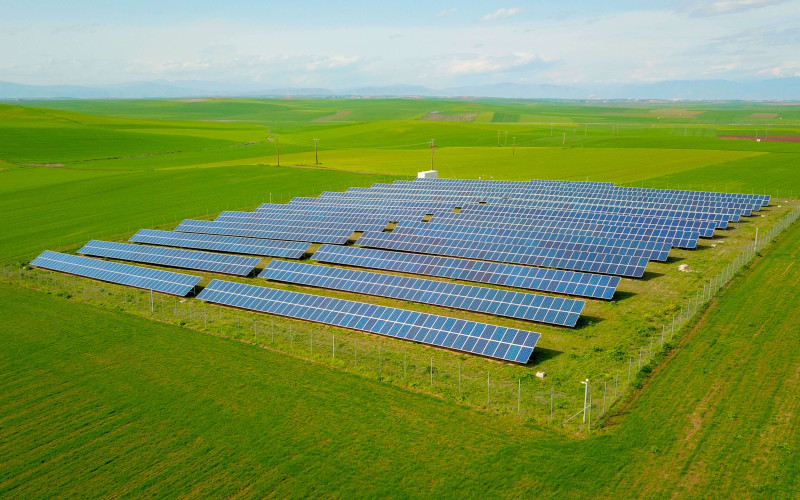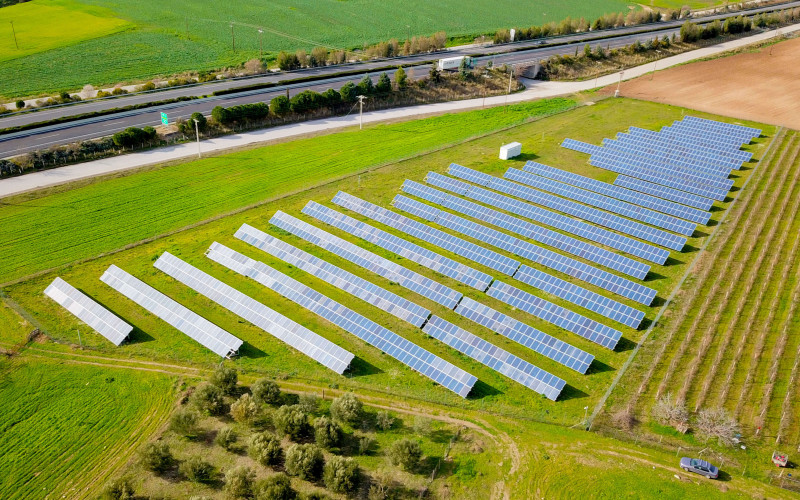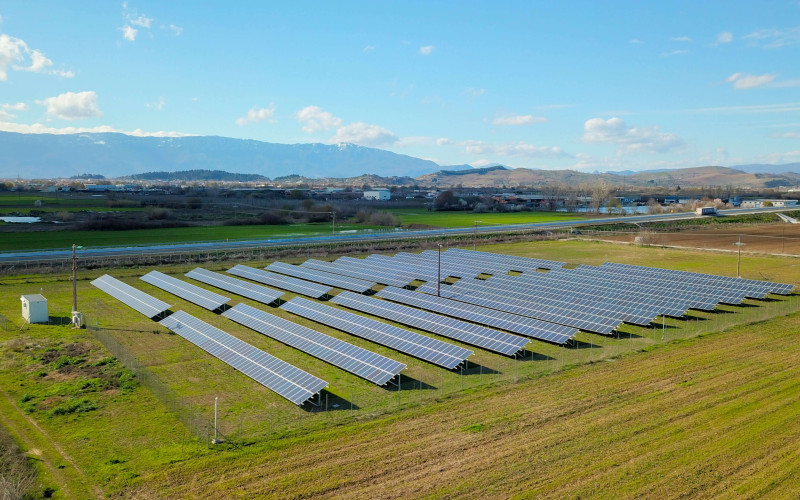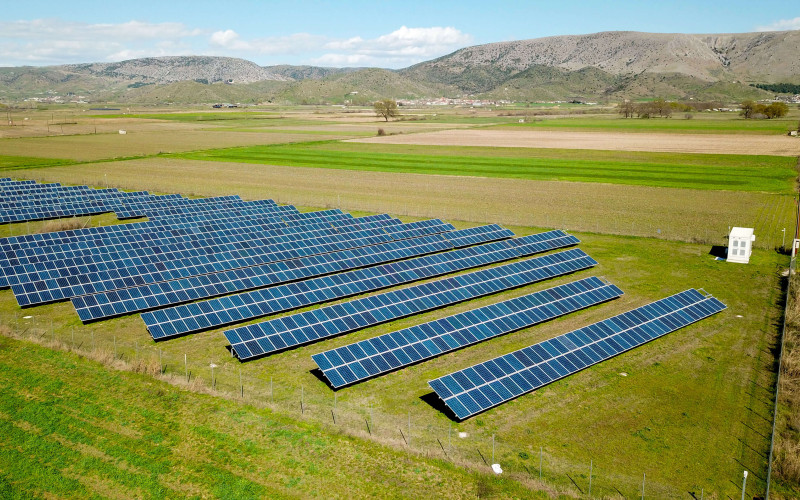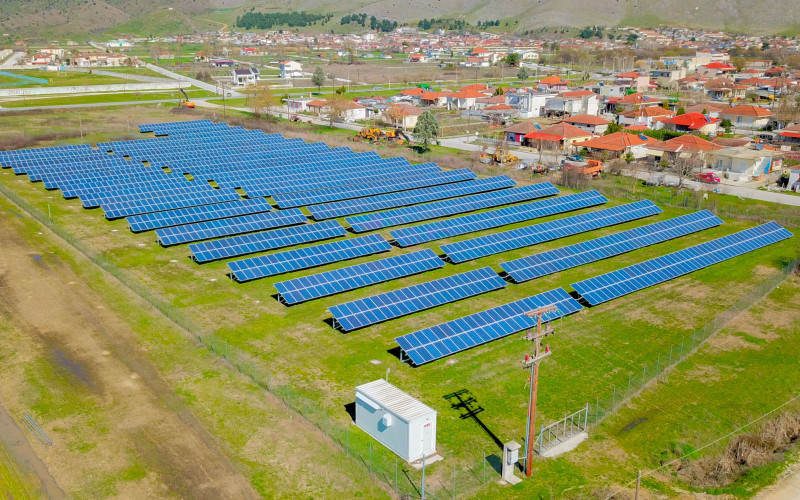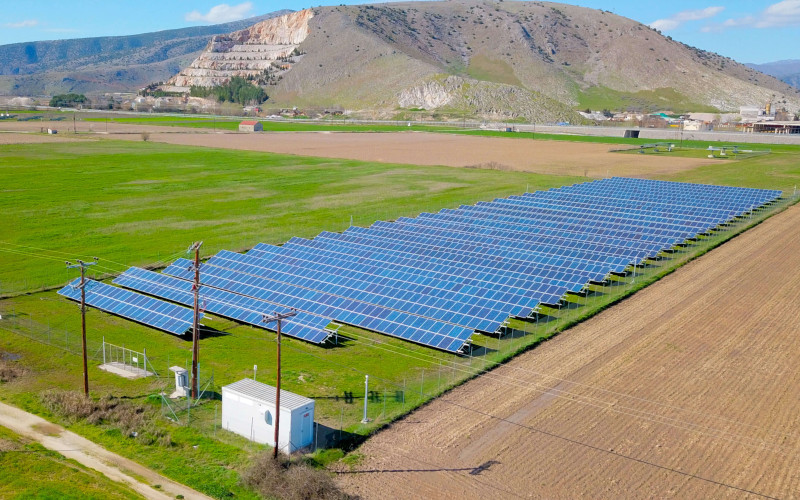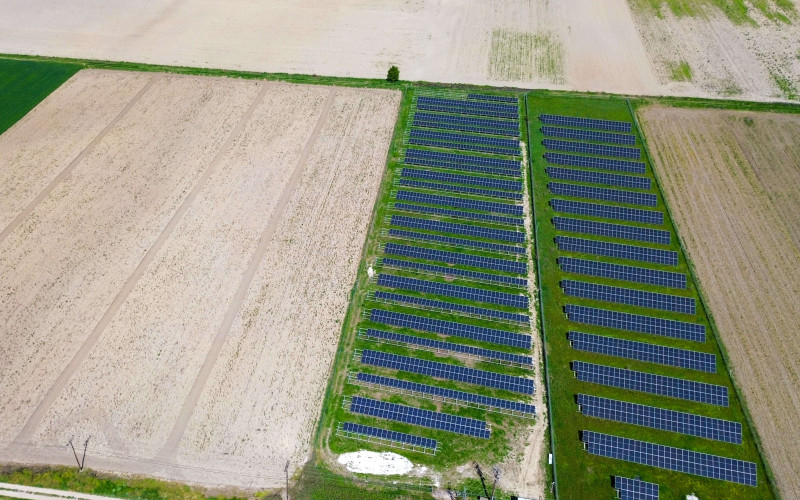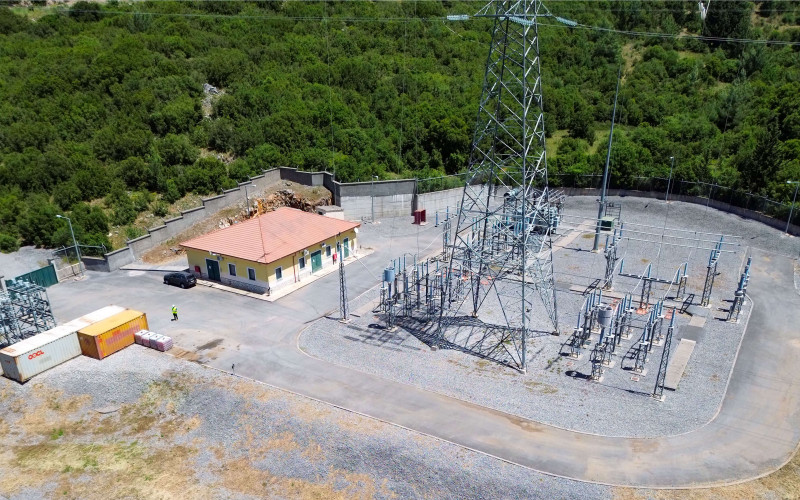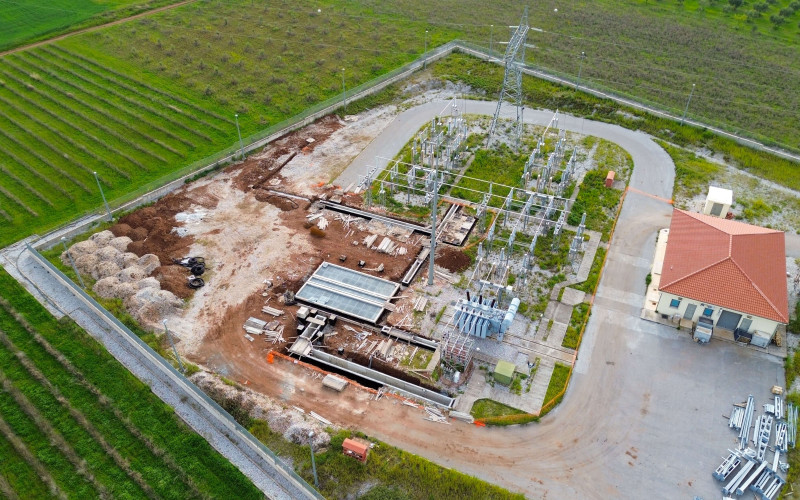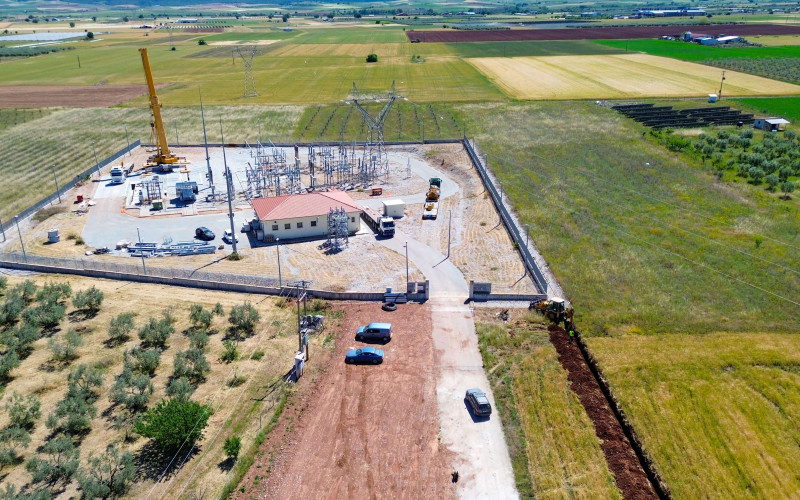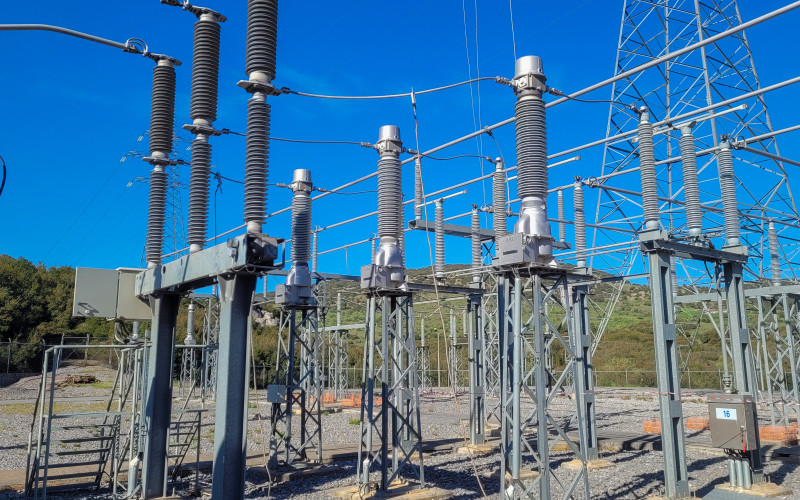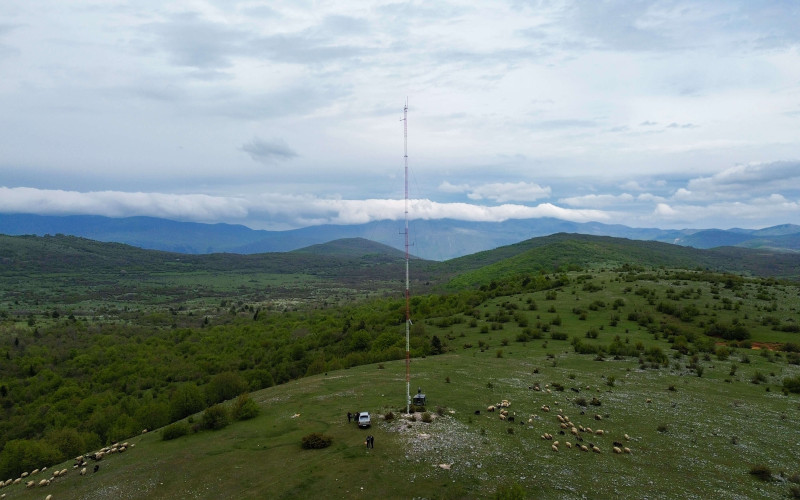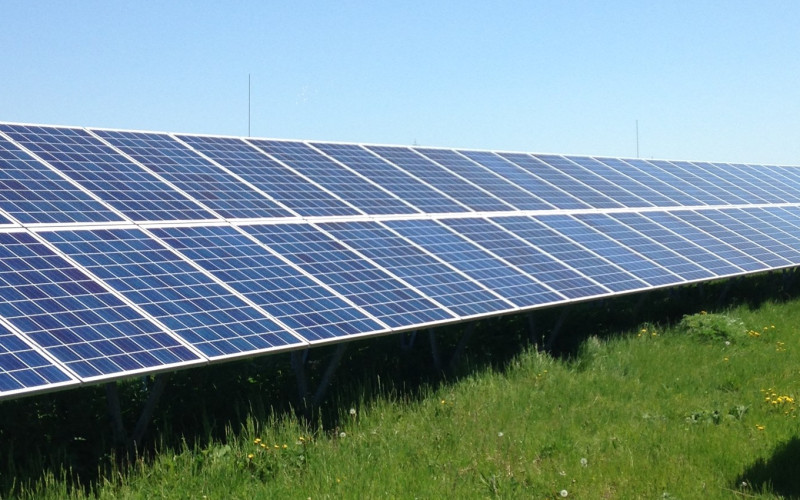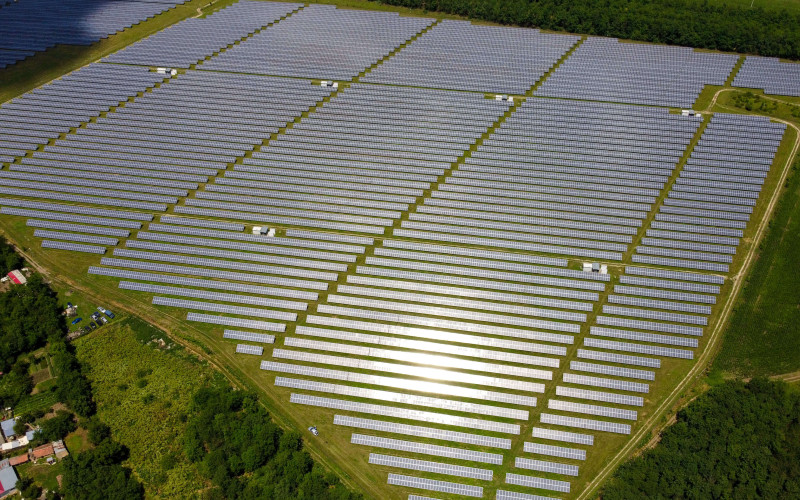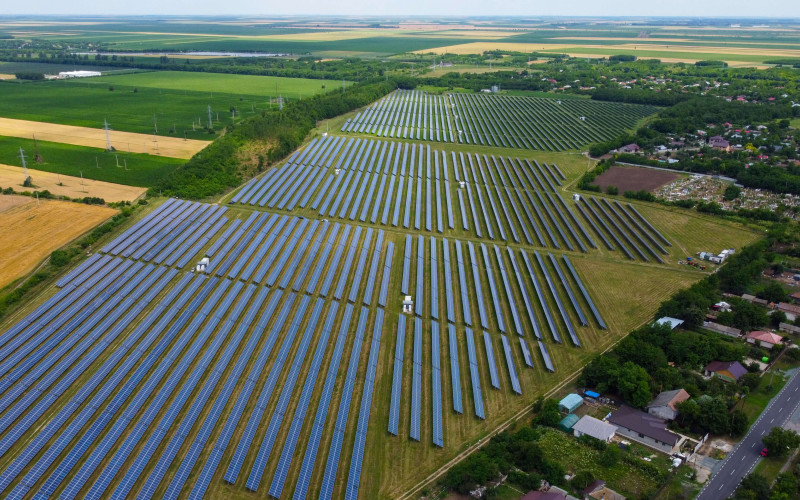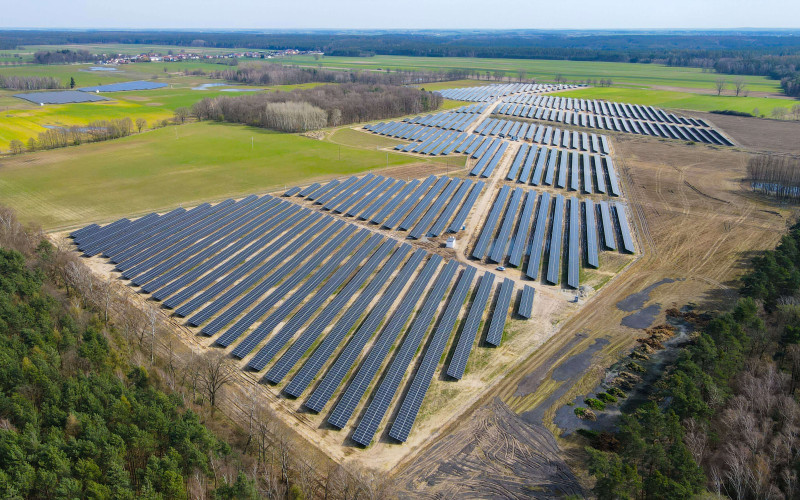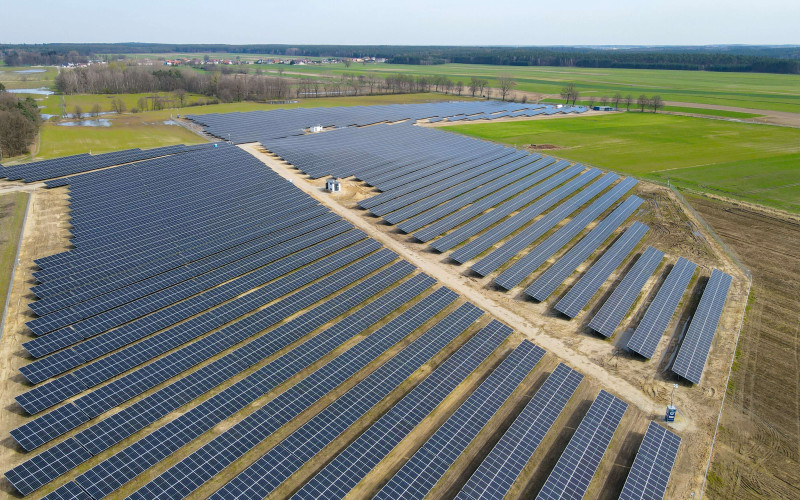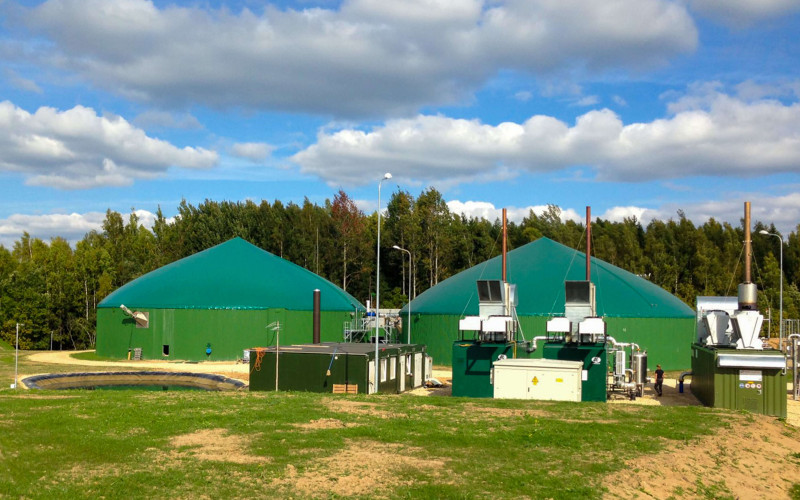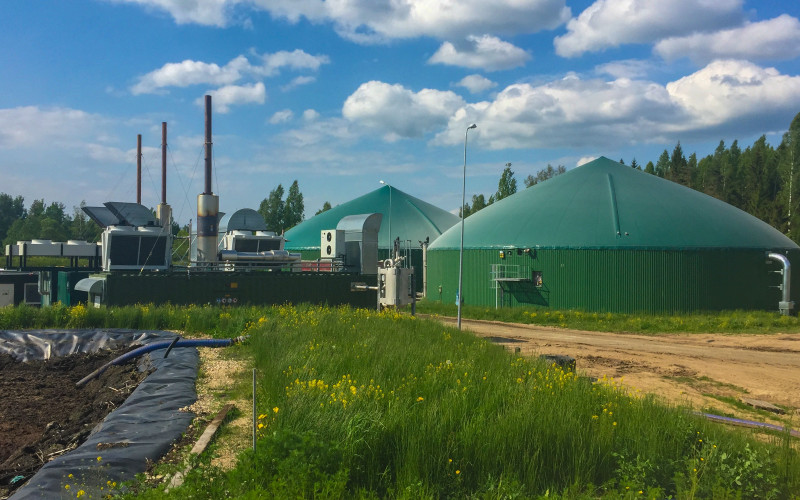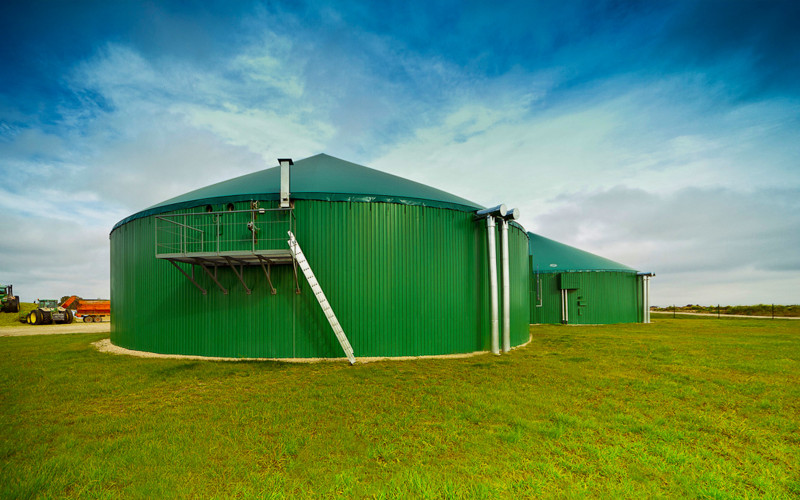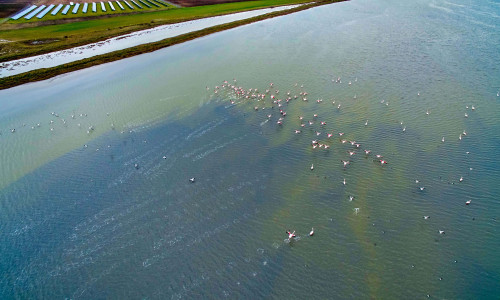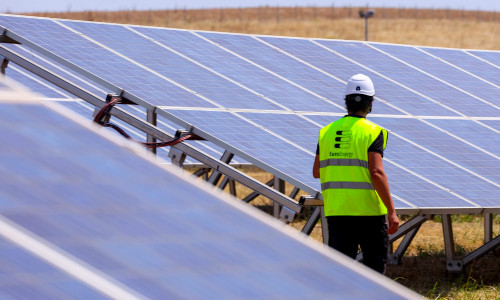Launched in 2007, our headquarters are in Athens, Greece with a team of 17 that oversees the global and local functions of the company. By 2030, renewables are expected to exceed 61% of Greece's energy sources, with a strong demand for solar and wind.
Operations
In Greece, we manage a 72 MW portfolio of wind and solar (PV) assets in operation and are developing a 77 MW portfolio of wind and storage projects. By originating and developing projects, EuroEnergy plans to harness its long-standing experience in the country by growing its existing portfolio to reach a scale of approximately 400 MW in operation by 2027.
Country Highlights
Greece offers exceptional opportunities for renewable energy investment, boasting abundant natural resources, particularly high solar irradiance, and consistent wind speeds. The ambitious National Energy and Climate Plan, targeting a significant increase in renewable energy capacity by 2030, is evidence of the country's commitment to green transition.
Supportive government policies, including favorable feed-in tariffs and streamlined permitting processes, enhance Greece's appeal for RES investments. Additionally, there is a growing demand for green energy among consumers and businesses, driven by environmental awareness and various economic benefits of renewable energy.
Athens, 166 74
Greece
T +30 216 000 7300
[email protected]
We entered Croatia in 2023 and will establish a local office in Zagreb in 2024 led by a Country Manager. Croatia's 2030 National Energy and Climate Plan (NECP) aims to increase the share of renewable energy in the country's energy consumption from 28% in 2022 to 36.4% by 2030.
Operations
In January 2023, EuroEnergy signed an agreement to acquire a 114 MW wind project under development. EuroEnergy’s goal is to formalize its presence in the country with at least 100 MW of assets in operation by 2027.
Country Highlights
Croatia is a growing market for renewable energy investments, with vast green energy development potential, boasting abundant solar, wind, and hydroelectric resources. The government's ambitious 2030 National Energy and Climate Plan (NECP) targets a considerable portion of energy consumption to be met by renewables, a commitment that has been supported by several investments in renewable infrastructure, particularly in solar and wind capabilities.
Investors are drawn to Croatia not only for its natural resources but also for its recently revised, streamlined legislative framework facilitating renewable energy development. Additionally, the country benefits from funding initiatives like the Recovery and Resilience Facility (RRF), aimed at modernizing the national electricity grid to align with the 2030 NECP goals.
We entered Romania in 2013 and have an office in Bucharest where our operations are guided by a local team and country manager. In order to reach its 2030 renewables target of 34%, Romania plans to add around 7 GW of new capacity, of which around 3.7 GW is intended to be PV solar projects.
Operations
In Romania, EuroEnergy owns and manages an 18.1 MW portfolio of solar assets, and is currently developing a 20MW portfolio that is expected to result in a doubling of its installed capacity by 2027.
Country Highlights
Romania offers an attractive environment for renewable energy producers, with supportive regulations and untapped potential in the energy sector. Since the introduction of the Green Certificates scheme, the country has made continuous efforts to incentivize the adoption of renewable technology.
The shift towards subsidy-free projects and favorable merchant prices creates a conducive economic climate for renewable investments. Romania's commitment to green energy is bolstered by strategic EU fund utilization, notably the Recovery and Resilience Facility (RRF), which will bolster renewable infrastructure.
Bucharest, 011233
Romania
T +40 31 437 7016
[email protected]
We entered Poland in 2024 and have an office in Warsaw under the leadership of the Country Manager. In 2021, Poland adopted the Energy policy of Poland until 2040 (PEP2040) program with the following main targets: 32% of renewables in electricity generation and no more than 56% of power from coal by 2030.
Operations
EuroEnergy has constructed and now operates a 20 MW solar asset portfolio in partnership with Afcon Renewable Energy. EuroEnergy is also developing a scalable pipeline and aims to reach over 100 MW in operation by 2027.
Country Highlights
Poland presents a dynamic and promising landscape for investments in renewable energy. Despite historic reliance on coal, the country is shifting toward green alternatives. The rapid growth of the solar sector is proof of this commitment, with the country's solar capacity having increased from just 0.2 GW in 2016 to an impressive 7.7 GW by 2021.
Polish Government initiatives like the Contract for Difference (CfD) subsidy scheme, offer long-term financial security to project developers, allowing for stable revenue streams and fostering renewable energy expansion. With clear government objectives and vast wind and solar potential, Poland offers compelling opportunities for investors interested in the sector.
Warsaw, 00-110
Poland
T +48 573 443 882
[email protected]
EnergyEnergy entered Latvia in 2011 by entering a joint venture to develop a series of biogas production facilities. We have a team of over 20 people based in Riga. Latvia continues to expand the share of renewable energy in its power mix, which accounts for around three-quarters of electricity generation. Croatia’s renewable energy targets include an intention to meet nearly 60% of its final energy consumption from renewables alone by 2030.
Operations
EuroEnergy manages a 4.2 MW portfolio of three biogas plants, covering its full operations with a team of over 20 people based in Riga. In parallel with the biogas plants’ operation, EuroEnergy is reviewing opportunities to grow and technologically diversify its Latvian portfolio.
